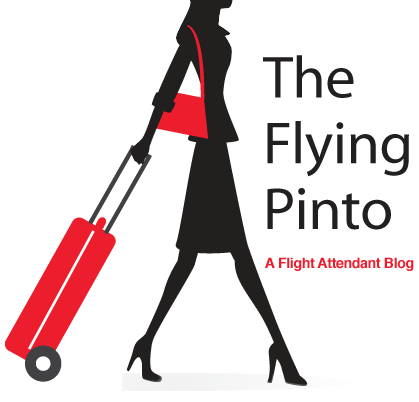Alamy
“This airline sucks!” exclaimed a passenger after he spun from the ticket counter and looked directly at me. As if it were my fault he didn’t get an upgrade! My faint smile – a nervous reaction – caused him to go from angry to irate in a matter of seconds. He quickly called my smile a “smirk” that he promised to write about in a letter that, as far as I know, never landed on my supervisor’s desk.
“Hello, how are you?” is how I often greet passengers during boarding, but after a handful of passengers tell me exactly how they are, and how they were on their last trip, and why they’ll never fly my airline again, I’ll eventually shorten it to just plain “Hello.” Why roll out the red carpet and invite confrontation into my life when I don’t have to? But sometimes even that one word will get shortened to a simple, yet very pleasant nod after a few of them go ignored long enough. Hey, my life is crazy enough without the one-sided conversations.
Upon spotting a pair of cat-eyed frames during boarding, a co-worker cooed, “Oh I love your eyeglasses!”
“We’re not sitting together and it’s your problem!” the passenger responded. No longer did the funky frames look quite as cute paired with an evil glare and a pointing finger.
And passengers wonder why flight attendants aren’t always smiling.
Has flying always been so bad? Depends on who you ask.
16 years ago I worked for Sun Jet International Airlines, a low cost carrier that is no longer in business. For the record, we never flew overseas. We didn’t even have layovers. We worked turns, meaning we flew to a city and back in a single day. From either Long Beach, Dallas, Fort Lauderdale, or Newark, passengers received a drink and a blueberry muffin or chocolate chip cookie, depending on the time of day, for $69 a flight.
By the way, I’m the one on the left in front of the Sun Jet plane in the photo below.
Heather Poole
Cheap Flights, Angry Passengers
What I remember most about working for the airline was not all the broken armrests, or the time my jump seat fell off the wall on landing, or the used hypodermic needle I found in a seat pocket, or the angry male passenger who chased me into the ladies room at DFW airport because of an hour long delay.
I remember most clearly our flight attendant training. It only lasted two weeks and one of our classes was devoted to handling unruly passengers.
“Our passengers may not communicate the same way as you or I might in certain situations,” said one of our instructors as she glanced nervously at another instructor who just nodded in agreement.
At the time I assumed she was referring to certain four letter words. A few weeks later I found myself actually wishing for four letter words. Have you ever had a grown man hawk a loogie at you because there was an inflatable raft inside his overhead bin? I have.
Three months after my first trip I quit working for Sun Jet (never-went-anywhere) International Airline. Then I did something crazy, considering what I’d been through. I applied to another airline, one of the majors, and actually got hired. The training lasted almost eight weeks and focused primarily on food service and emergency training. Once on the line, I couldn’t believe how different the job was compared to working for Sun Jet.
The airplanes were clean, without a strip of duct tape in sight. We served three meal choices in coach. There were magazines, newspapers, pillows and blankets. And passengers were really nice. The flights were rarely ever full so passengers could stretch out, which might explain why they seemed, dare I say it, happy.
Some would even thank us for a job well done after a flight. Don’t get me wrong, passengers still complained, but the focus was primarily on the food, not me – or my smile, or my inability to do things like POOF! create more overhead bin space and get rid of all the middle seats or even the last row.
The Day Travel Changed
Then something horrible happened that changed air travel as we know it forever. That day was September 11, 2001. Most people don’t have to think about it every time they go to work the way I do. From the moment I step out of my shoes to go through airport security until the aircraft touches ground and slides into the gate, I think about what happened to those planes. They were my planes. My coworkers. My passengers. That
Immediately after 9/11, flight attendants took pay cuts, worked flights staffed with FAA minimum crew, and watched things we had taken for granted slowly disappear, like pillows, blankets, and even a few airlines. At yearly recurrent trainings we were taught something new: karate. We also learned to throw hot coffee at lunging terrorists.
If passengers weren’t afraid to fly, they could no longer afford to fly, so the airlines had to drastically lower tickets prices. A one-way ticket could now be had for the same price as a pair of designer jeans. In an effort to stay in business, free food in coach was the first thing to go. This saved airlines a lot of money because they no longer had to pay for the food, or the food’s weight in fuel, or the caterers who delivered the food, or the extra flight attendants required to serve the food.
If the removal of a single olive could save an airline $40,000 a year, imagine how much the airlines saved by removing four ovens no longer needed in coach. Even first class closets were taken away, and replaced with extra passenger seats.
Everyone and their grandmother could afford to fly – a few times a year. Flights were booked full and the lines at security grew.
Passengers began losing their patience, not just with airport security, but with each other. No longer did they remain seated at the gate so those with a close connection wouldn’t miss their flights. It didn’t take long before I started having flashbacks. It was like I worked at Sun Jet all over again, only now I had to dodge insults AND keep a watchful eye on the cabin while remaining politically correct for up to 14 hours on the job after an eight-hour layover at an airport hotel.
When passengers complain about “bad service,” I take it personally. There’s only so much I can do as a flight attendant with the tools I’ve been provided. I work hard, harder than ever before, to do a job I take pride in.
The reality is that passengers are not getting bad service, they’re getting limited service – a la carte service. I’m still serving passengers the same way I was taught 15 years ago. The only difference is that we charge $7 for a small bottle of wine and $10 for a turkey sandwich with chips in coach.
My career changed to meet the demands of the flying public. But now everyone seems to have buyer’s remorse. Airlines are competing for business by charging fees to check bags so that they can offer cheap tickets online. Passengers complain about being nickled and dimed, yet continue to book flights that save them a buck. That’s okay. It’s the American way.
Life, they say, is about the journey, not the destination. Obviously, they haven’t traveled in coach in these days.


 Facebook
Facebook Twitter
Twitter RSS
RSS Email
Email
no comment